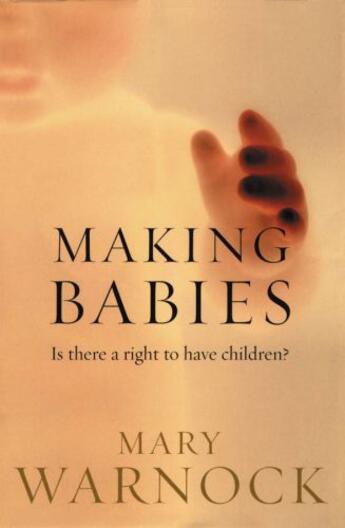-
Nombre de pages : (-)
-
Collection :
(-)
-
Genre :
(-)
-
Thème :
Non attribué
-
Prix littéraire(s) :
(-)
Résumé:
The development of new reproductive technologies has raised urgent questions and debates about how and by whom these treatments should be controlled.
On the one hand individuals and groups have claimed access to assisted reproduction as a right, and some have also claimed that this access... Voir plus
The development of new reproductive technologies has raised urgent questions and debates about how and by whom these treatments should be controlled.
On the one hand individuals and groups have claimed access to assisted reproduction as a right, and some have also claimed that this access should be available free of charge. As well as clinically infertile heterosexual couples, this right has been claimed by single women, gay couples, post-menopausal women, and couples who wish to delay having children for various reasons.
Others have argued that a desire to have children does not make it a human right, and, moreover, that there are some people who should not be assisted to become parents, on grounds of age, sexuality, or lifestyle.
Mary Warnock steers a clear path through the web of complex issues underlying these views. She begins by analysing what it means to claim something as a 'right', and goes on to discuss the cases of different groups of people. She also examines the ethical problems faced by particular types of assisted reproduction, including artificial insemination, in-vitro fertilization, and surrogacy, and argues that in the future human cloning may well be a viable and acceptable form of treatment for some types of infertility.
Donner votre avis














